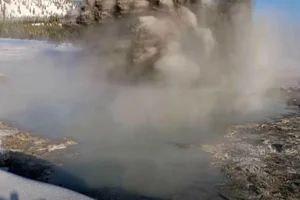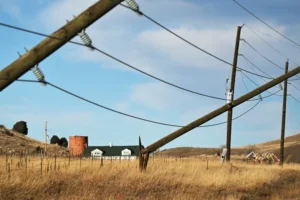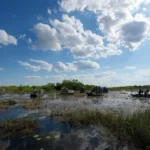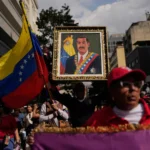National Park Service Won’t Plow ‘Plug’
Declining tax collections suggest ailing winter economy along Wyoming-Montana border
- Published In: Other News & Features
- Last Updated: Nov 19, 2023
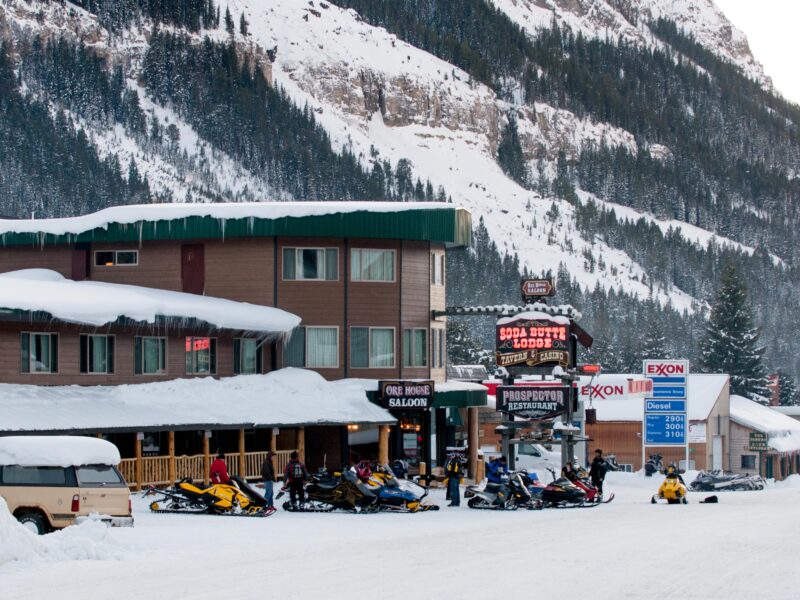
Snowmobiles line the edge of U.S. Highway 212 in front of the Soda Butte Lodge in Cooke City, Montana. Proponents of plowing the highway to allow auto access say declining resort tax collections show a drop in business from sledders. (Courtesy photo from Montana Office of Tourism and Business Development)
By Ruffin Prevost
Special to the Wyoming Truth
CODY, Wyo. — Yellowstone National Park has closed for the summer season, and an early round of winter weather has passed through the region, leaving October snowfall to linger in the higher elevations.
In a few weeks, snowmobilers will return to a popular network of trails straddling the Wyoming-Montana border, just outside the park’s Northeast Entrance. Debate will continue over whether to plow an eight-mile section of U.S. Highway 212 that has traditionally been left snow-covered to be used by sledders for access to backcountry trails.
The future of how the road will be managed is in dispute, but one thing is certain: the National Park Service won’t plow the “plug,” as the snow-covered section of road is known locally.
Advocates of plowing say it would open the park’s northern range to greater auto access in the winter, and that steeply declining tax collections show the winter economy is struggling. Opponents say plowing would disrupt a long-established history of snowmobiling in the area and change the character of nearby communities.
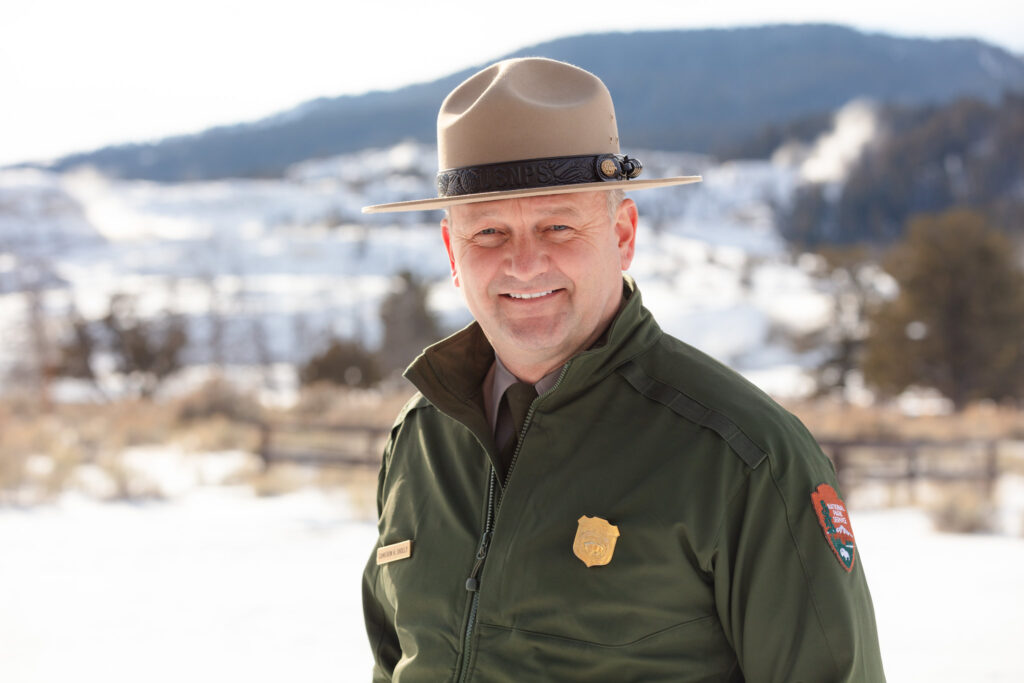
“I could care less which way they go on that, but we’re not going to [plow] it though,” Yellowstone Superintendent Cam Sholly said last month during an interview with the Wyoming Truth reflecting on his five years as head of Yellowstone.
For decades, the National Park Service has plowed the Northeast Entrance Road through the Lamar Valley, connecting Gardiner and nearby park headquarters in Mammoth Hot Springs, Wyoming to the tiny Montana outposts of Silver Gate and Cooke City.
Plowing proponents have called on the Park Service to plow an additional eight miles to clear the plug, allowing autos traveling from Billings, Montana and Cody to enter Yellowstone through the Northeast Entrance.
But in his clearest statement yet on the issue, “the Park Service will not plow the plug,” Sholly said.
He said that if state or county agencies were to plow the plug, “that doesn’t affect me in any way, shape or form.”
No resource management changes
Sholly didn’t anticipate that plowing the plug would require changes in Yellowstone’s winter resource management in the Lamar Valley.
“We have 30,000 people a month here in the winter, versus a million in a month in the summer,” he said. “So even though there might be an uptick in vehicle traffic, I don’t see that uptick being massive in January.”
Shaleas Harrison, an organizer with the pro-plowing Park Access Recommendation Committee (PARC), said that declining winter tax collections over the last several years show business from snowmobiles is off steeply, and that plowing the plug is needed to revitalize the regional winter economy.
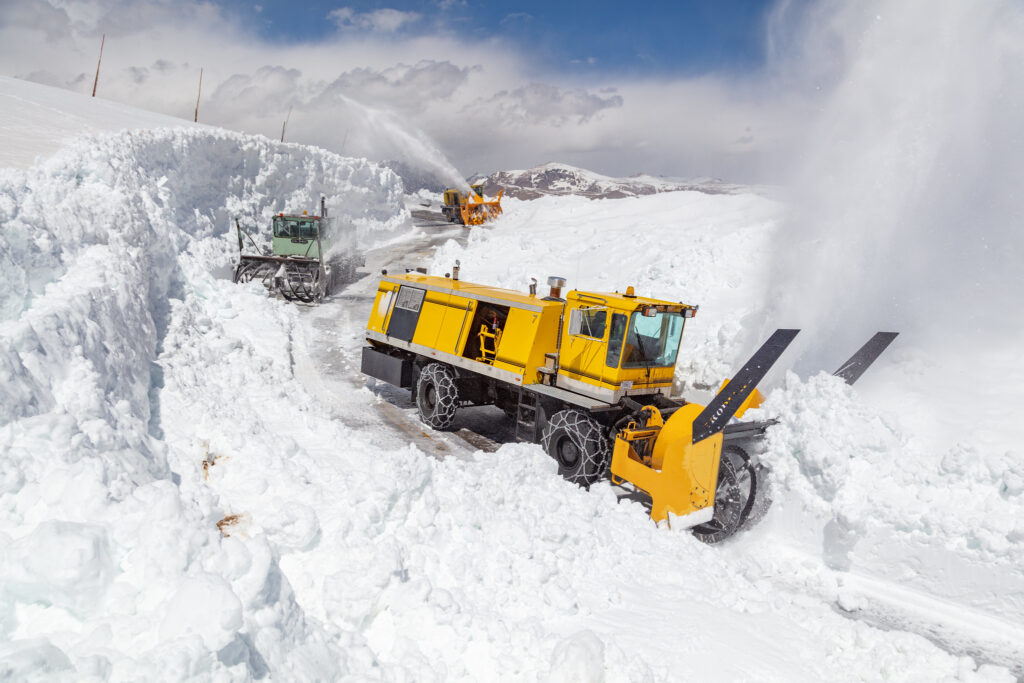
Montana has no sales tax. But the unincorporated Park County, Montana communities of Cooke City, Silver Gate and Colter Pass collect a resort tax meant to help raise money for infrastructure and offset the impacts of heavy summer tourism.
“The resort tax records provided by Park County, Montana clearly show that the Cooke City region winter economy is struggling,” Harrison said. “Allowing year-round wheeled access to the region would only help boost the economy, especially in the winter. And this would only boost snowmobiling and other uses once proper parking areas are made.”
Harrison provided resort tax records that show an approximate 34% decrease in winter collections for the first quarter (January-March) of 2020 compared to the same three-month period in 2006. Adjusted for inflation, the decrease amounts to an approximate 57% drop.
She said resort tax collections are a reliable indicator for how the winter tourism and snowmobile economy are faring. The tax is collected on “luxuries,” including lodging, snowmobile rentals, food and beverages served in restaurants and bars, souvenirs and recreational activities. No resort tax is collected on essentials like groceries, gasoline, medicine and propane.
Working hard, making money
Ben Zavora, a member of the opposition group Protect Our Plug (POP), said he wasn’t sure why lodging tax collections had been generally trending down over the period Harrison highlighted.
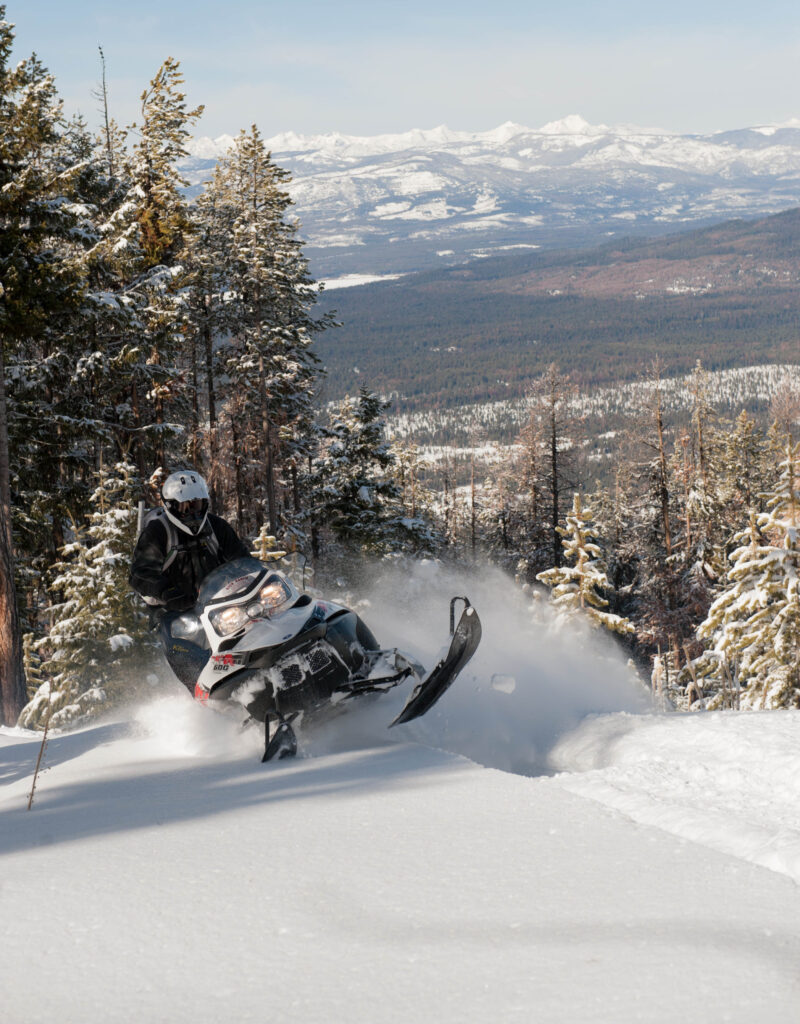
“The people that are, by and large, the people that don’t want to plow are all doing very well. We’re making money, we’re working hard and we’re feeling busier every season,” said Zavora, who has worked previously in Cooke City as a backcountry guide and who has owned the town’s Sinclair gas station for the past three years.
Zavora said many businesses have changed ownership in recent years. He speculated some new owners might not be paying resort taxes as required by law, but did not provide specific examples.
Harrison said that summer and fall resort tax collections were up substantially over the same period, and it wouldn’t make sense that business owners were collecting and paying taxes during summer and fall, but not winter. She noted winter and summer resort tax collections in nearby Red Lodge, Montana were up substantially over the same period.
Zavora said that it was a “false narrative” that all businesses in Cooke City were struggling in the winter, and that many residents and business owners value the isolation brought by the snow-blocked road. They don’t want the additional auto traffic that would come from plowing to change the winter character of the area, he said.
A survey designed by regional travel and tourism promotion agencies in Wyoming and Montana has been sent to residents as part of an effort to gauge public opinion on winter recreation in the area, including whether to plow the plug.
The survey results may help guide policy makers on how to best manage winter recreation in the region. Both Harrison and Zavora urged community members to complete and submit their questionnaires as soon as possible.


